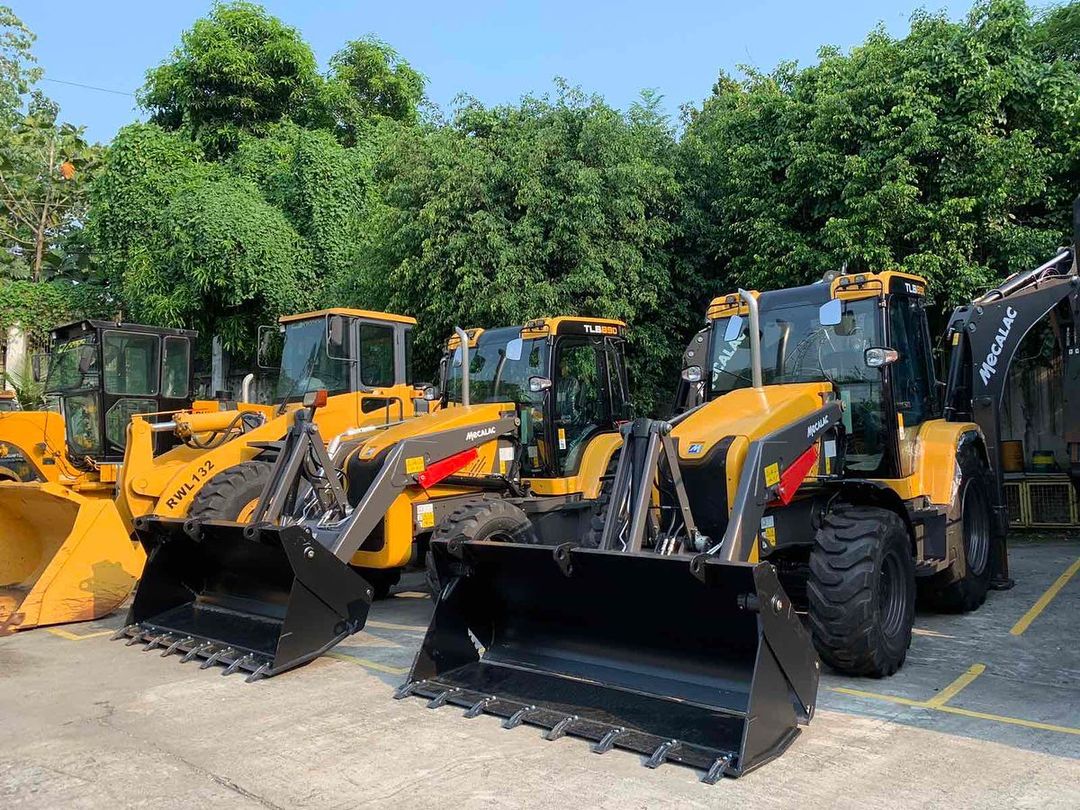The Types of Heavy Equipment

Types of Heavy Equipment
When it comes to construction, mining, forestry, agriculture, and various industries, a wide array of heavy equipment is employed to tackle challenging tasks efficiently. These machines are essential for handling large-scale projects that would be impractical to accomplish manually. Understanding the different types of heavy equipment is crucial for optimizing operations and achieving better results.
1. Excavators
Excavators are pivotal in earthmoving and construction tasks. With their boom, stick, and bucket attachments, they excel at digging, moving materials, and performing a range of tasks.
2. Bulldozers
Equipped with powerful blades, bulldozers are adept at pushing and leveling soil, debris, and materials, making them indispensable for grading and site preparation.
3. Loaders
Loaders are designed to efficiently load materials like dirt, gravel, or construction supplies onto trucks and other transport vehicles, streamlining material handling operations.
4. Backhoes
Combining excavation and loading capabilities, backhoes are versatile machines used for digging, trenching, and loading materials.
5. Graders
Graders are utilized for precise surface leveling and grading, particularly for road construction, ensuring optimal gradients and smooth surfaces.
6. Scrapers
For large-scale earthmoving over extended distances, scrapers are essential. They excel at moving and leveling vast quantities of materials.
7. Rollers
Rollers play a crucial role in compacting soil, asphalt, or other materials to create solid and even surfaces, vital for road and construction projects.
8. Cranes
Cranes are indispensable for heavy lifting and moving tasks on construction sites and in industrial environments, contributing to efficient material handling.
9. Pavers
Pavers are specially designed for precise placement of asphalt or concrete, ensuring the creation of durable and well-constructed surfaces.
10. Dump Trucks
Dump trucks are purpose-built for transporting loose materials, such as dirt, sand, gravel, or construction debris, optimizing material transport.
11. Forklifts
Forklifts are invaluable for lifting and moving heavy loads within warehouses, factories, and construction sites, enhancing logistics and material handling.
12. Concrete Mixers
Concrete mixers efficiently blend and transport concrete ingredients, a crucial component of various construction projects.
13. Drill Rigs
Drill rigs are employed for drilling holes in the ground, serving exploration, mining, and construction purposes.
14. Trenchers
Trenchers are specialized in digging trenches for utilities, drainage systems, and other essential infrastructure.
15. Articulated Trucks
Articulated trucks with pivot joints are designed to navigate rugged terrains and haul heavy loads, playing a pivotal role in demanding operations.
16. Compactors
Compactors contribute to stable and dense surfaces by compacting soil, gravel, or other materials, enhancing construction quality.
17. Dozers
Dozers, equipped with robust blades, are indispensable for pushing, leveling, and shaping soil, debris, and materials.
18. Crushers and Screeners
Crushers and screeners are vital in the mining and construction industries, aiding in the processing and separation of rocks, ores, and other materials.
Understanding the diverse types of heavy equipment and their specific applications is essential for optimizing construction and industrial operations. By leveraging the right heavy equipment for the job, industries can enhance efficiency, productivity, and overall project outcomes.
